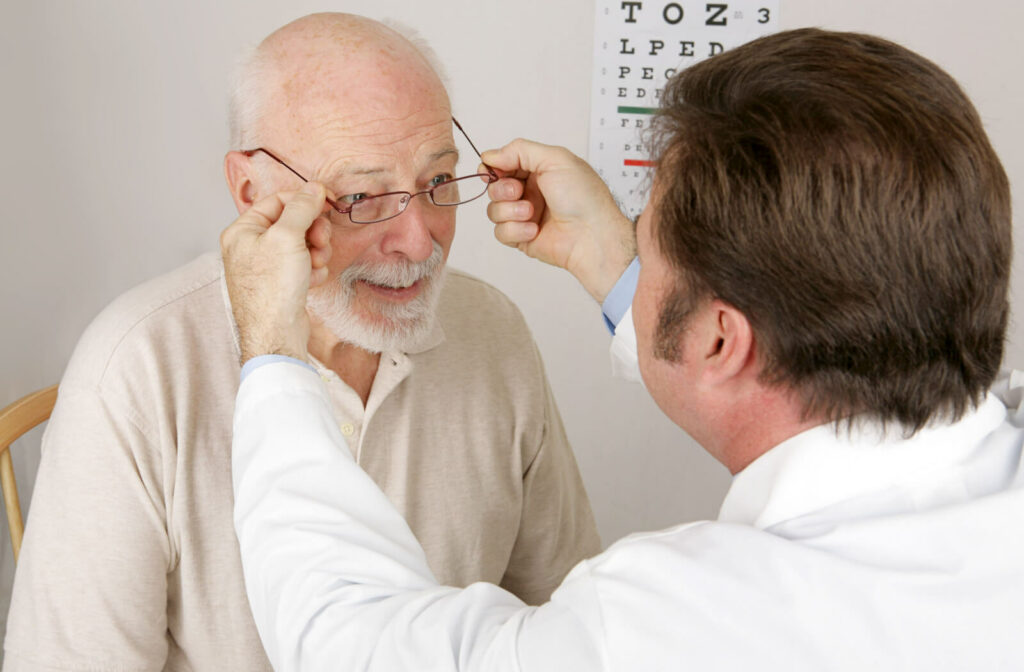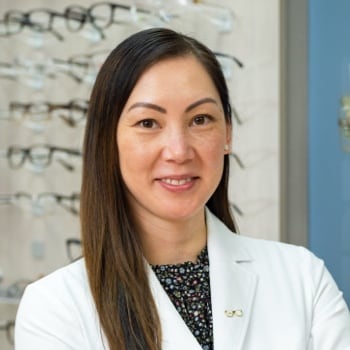There are many vision myths and misconceptions. One, in particular, is about wearing glasses and the belief that they can make your eyes worse. But this is not true.
Wearing glasses to correct a vision problem helps you see clearly but does not worsen your eyesight. If you wear glasses and your vision deteriorates, it’s usually from age-related changes or other eye conditions, not from wearing glasses itself.
Comprehensive eye exams can test your vision and ensure you have the right prescription, and optical services check for the correct fit, as ill-fitting glasses can do more harm than good.
Why Do People Wear Glasses?
Even with perfect vision, your eyes can change, and you may need glasses to see better. More than 150 million Americans wear prescription glasses to help improve their vision.
Not everyone with vision problems needs glasses. For example, if you need better lighting to see or can’t differentiate between similar colors, these conditions don’t always warrant glasses. Other times, you may experience the following symptoms that can indicate you need glasses:
- Blurry vision
- Double vision
- Hazy or fuzzy vision
- Headaches
- Squinting
- Seeing auras or halos
- Eye strain
- Distorted vision
- Trouble seeing and driving at night
People may need glasses for various reasons, but most commonly, they’re used to correct refractive errors. These errors occur when the shape of the eye does not properly focus light onto the retina (the light-sensitive tissue at the back of the eye).
When this happens, it leads to blurred vision. Glasses can help align the light to reach the retina, resulting in clearer vision. Common refractive errors include:
Nearsightedness
Nearsightedness, or myopia, is when you can see objects close up, but distant vision is blurry. It usually occurs in children and is caused by an elongated eyeball or steeply curved cornea.
Farsightedness
Farsightedness, or hyperopia, is the opposite of nearsightedness. Objects farther away appear clearly, but nearby objects are blurry. It occurs because the eyeball is too short or the cornea is too flat.
Astigmatism
Astigmatism is when light is unevenly distributed on the retina, and images appear blurry or distorted. Some people are born with astigmatism, but you can get astigmatism at any age.
Presbyopia
Presbyopia is a natural part of aging. It occurs when the eye’s lens loses flexibility, making it harder to focus on close-up objects. It’s more common around the age of 45 when people need reading glasses or bifocals.
Can Glasses Make Your Eyes Worse?
We know that glasses can improve your vision, but can they make your eyes worse? While your eyes can change over time for various reasons, glasses do not make your eyesight worse.
If you wear glasses and experience problems with your vision, there are a few reasons why this might happen:
- Prescription changes: Your eyesight can change over time, and you may need to update your prescription to account for these changes. It can seem like your vision worsens while wearing your glasses if they are not up-to-date.
- Poorly fitted glasses: If you have ill-fitting glasses, they can cause discomfort and eye strain, leading to worsening vision.
- Incorrect prescription: You can have the wrong prescription glasses, either too weak or too strong. This can affect your vision and cause eye strain and headaches.
- Dirty or scratched lenses: Dirty or scratched lenses can cause eye strain and headaches, making your vision appear worse while wearing your glasses.
Vision Problems as You Age
As we age, it’s common for our eyesight to change, and several age-related vision issues can occur, including:
Chronic Conditions
Fluctuating vision or frequent changes in vision may indicate chronic conditions such as diabetes or high blood pressure (hypertension).
Age-Related Macular Degeneration (AMD)
AMD is a condition that causes damage to the macula, the part of the eye responsible for central vision. It can lead to a loss of central vision, making it difficult to read or see fine details. With AMD, your vision may appear distorted.
Glaucoma
Glaucoma is a group of eye diseases that can damage the optic nerve, leading to vision loss. It is often associated with elevated pressure within the eye but can also occur in individuals with normal eye pressure. Loss of peripheral or side vision may be a sign of glaucoma.
Eye exams and maintaining good eye health can help reduce the risk of age-related vision problems. It’s important to have regular eye exams to ensure your prescription is up to date and check for eye conditions that require correction or further treatment.
Find Eyeglasses to Help Your Vision
Wearing adequately fitted eyeglasses can correct your vision and help you prevent complications associated with worsening eyesight.
If you experience any issues with your vision while wearing glasses, book an appointment with Eyes on Plainville to determine the cause and receive appropriate vision correction and treatment.





